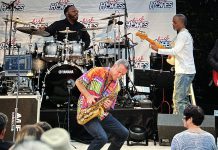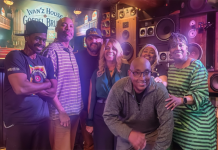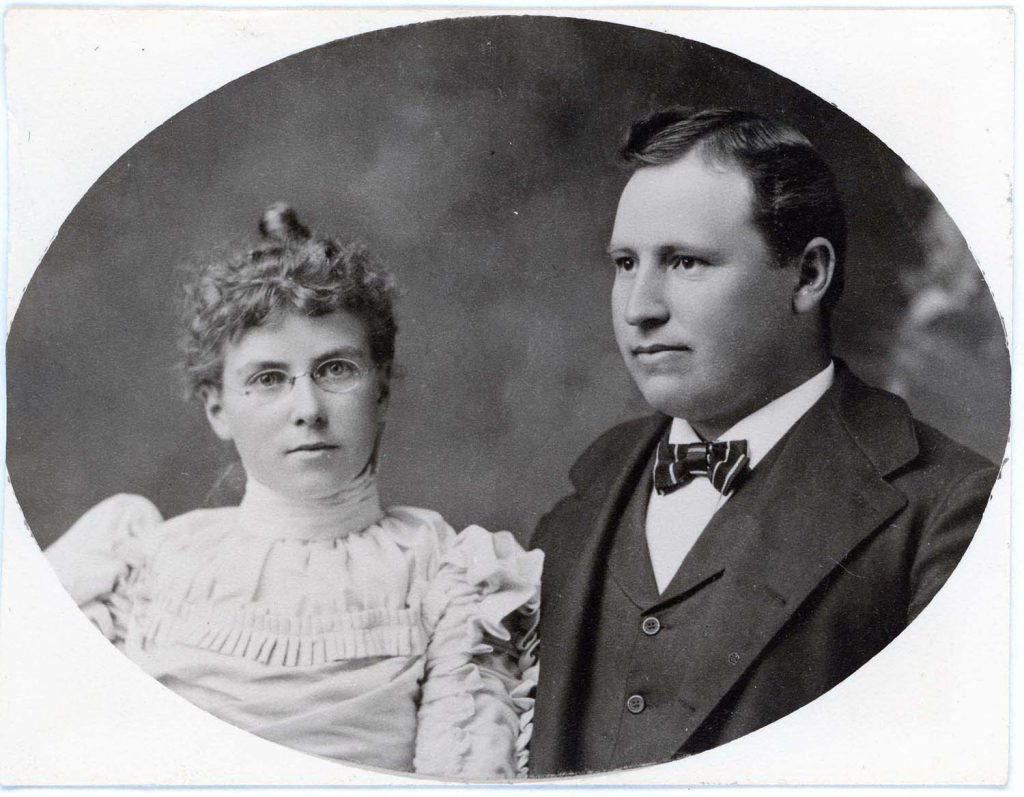
By Pete Weitzner | Special to the NB Indy
Late in life, Bernice Spencer, daughter of Edward and Grace Spencer, told “The Spencer Family Story” in a sort of scrapbook. Much of Bernice’s younger years were spent on Balboa Island—during the island’s younger years.
An excerpt: “Edward and Joe Beek developed Balboa Island, built homes. Edward always said, ‘Balboa was a little jewel of an island,’ so Violet, Hazel and I would name a street as soon as houses were built on it. We looked up names of precious stones, and chose ones we liked best.”
So now you know!
The gemstone names most of our streets bear – sure, Apolena is the name of William Collins’ fourth wife – were the inspiration of the ‘Spencer girls,’ Developer Edward Spencer’s three daughters, Violet, Bernice and Hazel.
That’s one of many things you will learn from the new virtual exhibit on Edward “E.B.” Spencer and his family, at the Balboa Island Museum Newport Beach.
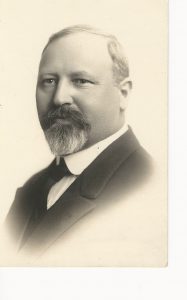
“Very important person in the Island’s early history,” Museum Executive Director Tiffany Pepys Hoey said. “He built the lighthouse, ran the Masonic Children’s Camp on Little Island.”
Architect and Real Estate Developer Edward Spencer married Grace Holden in 1897. They raised their family in Los Angeles, spent summers on the island, “making memories in the sand,” Bernice wrote.
They’d come down on the Red Car electric line or Edward’s ’22 Buick. “We were born with a silver spoon in our mouths, Bernice said, “when many people had very little money. We were very lucky.”
Edward sold lots for Collins, then built his first home on the Island in 1920. He’d build and sell many more.
Edward Spencer was a member of the Masonic Lodge of Southern California and head of the Masonic Home for Children in the hills of Covina. As with his family, Spencer loved to take the orphans down to Balboa Island in the summer.
Island Godfather Collins gave Spencer and the Masons roughly 30 lots on Little Island for “Camp Collins” – bordered by Grand Canal and Abalone, and by Balboa and Park Avenue. Camp Collins was a busy place.
Seymour Beek, who was born on the Island, and whose family has operated the Balboa Island Ferry for more than 100 years, recalls the Masonic camp.
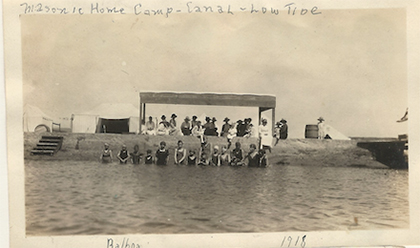
“Kids crawling over the place,” Beek said. “There was a pier with a platform you could dive off—canal must have been deeper then. They probably dredged a hole.”
“Mother told me how much fun he had taking the masonic kids down there,” Granddaughter Joanne Tatham said. Rocky Point in Corona del Mar was another camp site where Spencer took the Masonic Home kids.”
By the late 1930s nearly 200 kids were camping on Little Island, now known as Camp Tucker, after a $2,000 donation from John Tucker. There were tents and bungalows.
Homes and people started encroaching on the camp, as World War II encroached on the Island. In 1944, the military shuttered the camp, and in its place built a school. “Know some people who went to classes there,” Beek said, “some still on the Island.”
Meanwhile Edward was building homes on streets named Diamond, Amethyst and Opal.
“Edward must have been close to Mr. Collins to have his kids naming streets,” Beek said with a laugh.
Bernice and her sisters often asked Edward to build them a “summer house of their own, so they’ll always have a place on the island…a really tall house, with a light in the attic room so it will look like a lighthouse.” E.B. obliged in 1923.
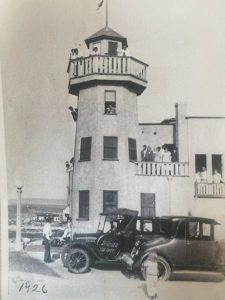
The lighthouse at North Bay Front and Sapphire was four stories, with a light tower and widow’s walk. Bernice even wrote a poem about the Lighthouse, “Just Reminiscing.” The final verse:
“Always shining way back here
Welcoming me to return and be
Again with those I love so dear
In our Lighthouse by the sea.”
The “lighthouse house” was as much a party house. Bernice honeymooned there, so did her sisters. A church perk was a key to the lighthouse for honeymoons. Guests would fill out a logbook detailing their experience. And the chef for all those parties? Proprietor E.B. Spencer.
“He was just a lot of fun,” Tatham said. “I feel his smile, his laughter. Loved his grandkids.”
Around 1925 Edward took a break from developing and took his family and Masonic friends on one of the maiden around-the-world cruises of the Carinthia, a turbine steam ship and star of Cunard’s White Star Line. Edward’s daughters, early-trained performers, sang and danced for the passengers – as many as 1,500.
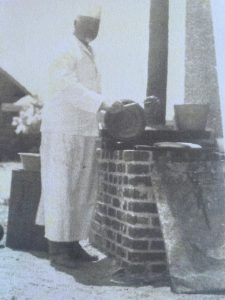
The “Spencer Family Story” contains a letter from Edward to Bernice, where he enclosed the family crest, lamenting that “it doesn’t make us any more eligible to be President of the U.S…. but it means a lot to an Englishman.”
Joanne Tatham tried to trace that family crest back to England to the family crest of Princess Diana Spencer, to no avail. “We thought that would be really cool,” Tatham said.
The Lighthouse was torn down in 1972, and a home designed by Newport architect William Clapet stands in its place today, one of many tall homes on the island. But back in the day, “I think it was the only tall house,” Tatham said.
The Spencer story points up how fortunate we are to have the Balboa Island Museum, preserving and curating our shared history. Google searches on Edward Spencer don’t yield much, if anything. The Museum has curated the Spencer story from various family members, items such as Bernice’s “Family Story” and vintage photos. We’re grateful to the family for sharing with our community.
It’s a gem of a story.
Admission to the Balboa Island Museum is free. For more information including hours, visit www.balboaislandmuseum.org
Author Pete Weitzner is the Co-Producer of “The Golden Age of Newport Harbor”


